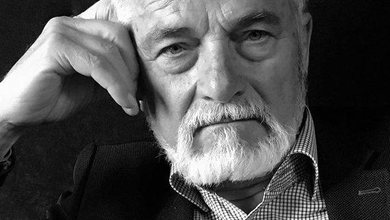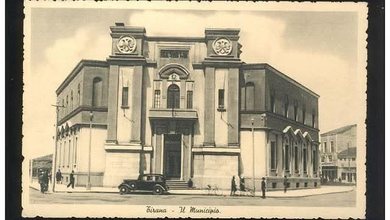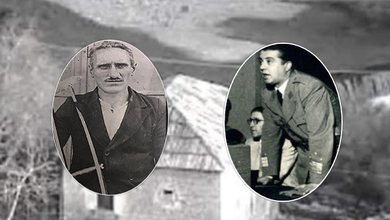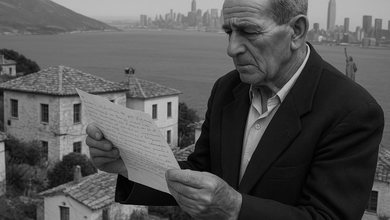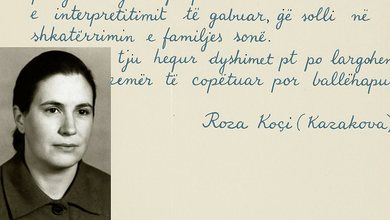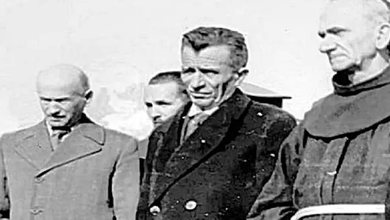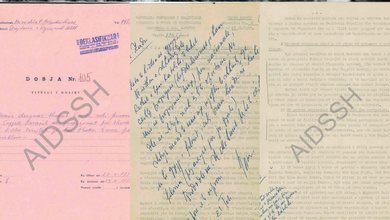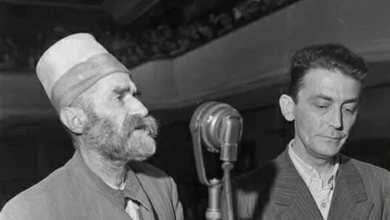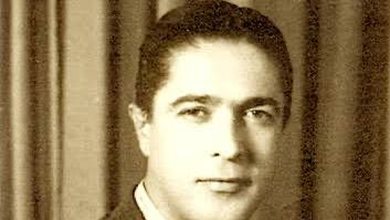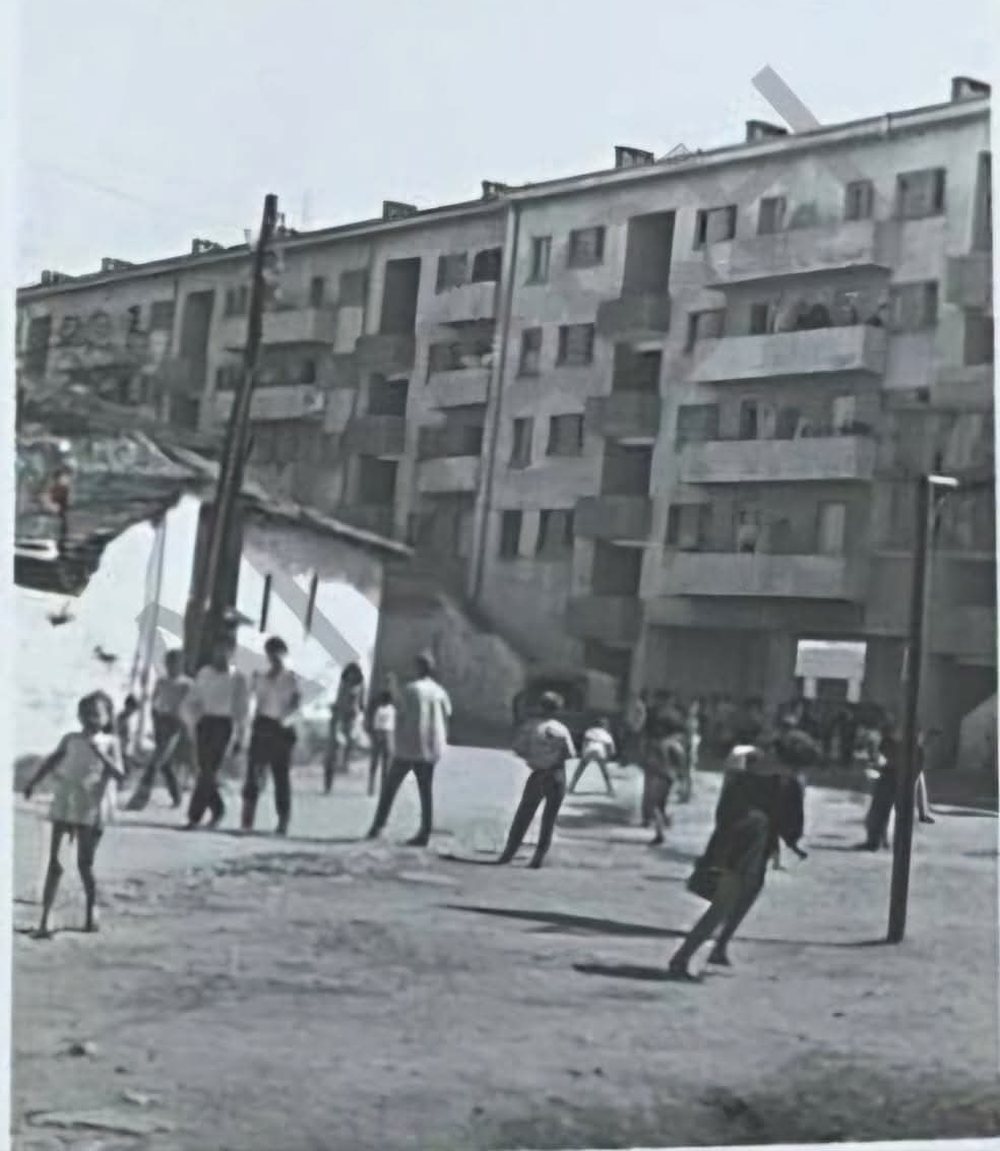
"On September 14, 1970, together with the "Ajax" football team from Amsterdam, about 30 journalists, photojournalists and commentators from Dutch radio and television arrived in our country. Among them were Bob Friedbander...photographer and Petrus...photographer.
During their stay in Tirana, the above photographers took many negative photographs, photographing soldiers, officers and police officers, poorly dressed children, old apartments, crowds of citizens queuing for melons, Chinese people at Rinas airport, etc.
Also, other Dutch journalists, who accompanied these photographers around Tirana, organized donations of money to children or our citizens, while the aforementioned photographers photographed these moments.
On September 16, 1970 at 6:30 p.m., when the "Ajax" team and their entourage arrived in Rinas, 22 films were confiscated by customs from photographers Bob and Petrus." - this is how the 2nd Directorate of the former State Security, which had undertaken to lead the surveillance of the 62-person staff of the Ajax team, reported on October 17, 1970.
Together with the sports journalist, Mr. Wiep Idzenga, a Dutchman, who with his interest takes us back 55 years ago, we researched an event that occurred in September 1970, in isolated and poor Albania, when the match between the legendary Ajax team of Amsterdam and 17 November of Tirana (today KF Tirana), the first of the Champions Cup, was taking place.
While the fans cheered on the field, another match was taking place behind the stands, that of the Sigurimi apparatus that documented every contact with foreigners, every conversation and every photograph, a typical "match" behind the scenes of a dictatorial state, when through the mechanism of the State Security, Albania controlled its image of poverty.
The report of September 12, 1970, read: "We inform you that on September 14, 1970 at 5:30 PM, the 'Ajax' football team from Amsterdam, consisting of 62 people, arrived in Tirana. Among them will be about 30 journalists, radio and television commentators. We ask that control measures be taken, especially for journalists."
The documents describe the surveillance of their every movement, including the moments of photography on the streets of Tirana. “From the development of 12 pieces of black and white film, it turned out that they had taken many negative photographs that present the reality of our country. We are attaching 25 pieces of photographs with characteristic features to this file. There have been such cases in the past. We think: Allowing journalists, photojournalists, etc. as fans of various sports teams from Western or revisionist countries to come to our country should be seen: In the impossibility of stopping them all, at least limiting their number to a minimum, since all of them have the tendency to speak badly and not present the reality of our country.”
Another note preserved in the file bears the signature of the Minister himself, who orders that some of the photos "be developed for experience and for a museum."
The match played on September 16, 1970 ended with a score of 2–2, a rare success for the Albanian team against the European champions.
But what still impresses today is how the boys in the poor country faced a champion team, boys who often became the targets of the regime themselves, as *Wiep Idzenga, a Dutch sports journalist specializing in football history, says in this interview.
Question: Your access to the former Security documents seems unusual for the routine of our work, a sports journalist seeking to know about the behind-the-scenes of a sporting event? Why is this?
Answer (Wiep Idzenga): This file contains data regarding the match played between 17 Nëntorit (KF Tirana) and Ajax, on 16.09.1970. I was interested in knowing what was written about the Dutch delegation that came to Albania, because in those years Albania was an isolated country and it was not common for foreigners to freely enter Albania. I was interested in knowing what was written about the people who came to watch the match. I was also interested in the documents regarding the Albanian team that traveled to Holland, but this remains to be discovered in the future.
Question: What impressed you most while studying the file?
Answer: The file is interesting because it shows how they were surveilled and followed. Every time they left the Dajti Hotel, how many people they left, who they spoke to, when they returned. It seems to me that they were scared by their experience in Albania, because they were back at the hotel within 5 minutes. I would walk all day if I were them. It was important to see who from the Netherlands was at this sporting event; here I have all their names and professions – journalists, photographers and people from television. It was interesting to see how they came to Albania and the surveillance that was done on them.
Question: Was there a specific person who caught your attention?
Answer: I was particularly interested in one photographer, who is mentioned very often. The file says that a special file was opened for him, an extra file from the one I saw. There were 62 people in total. He may still be alive; now I know his name and birthday, and if he is alive, I will contact him to get his experience and to understand the reason for the surveillance.
Question: What did you learn about the purpose of the survey?
Answer : The people at the top of the regime wanted the image of Albania to be clean and well-lit. They wanted to show only the best part of the country. If there were photos of something they didn’t like – people barefoot or in inappropriate clothing – they felt that it was bad for Albania’s international image, and that it shouldn’t come to light. I was surprised by that and I think they went too far.
Question: What do you think about archives and further research?
Answer: It was very interesting to see this part and I am glad that it was made available to me. In general, I hoped that this part would be more open, especially for the players who played against Ajax, like Gëzim Kasmi and Skënder Halili. They had their own clashes with the regime later; Halili was in prison for some time. I am interested in his file,
*Wiep Idzenga, a Dutch sports journalist specializing in football history, holds a Master's degree in Business Economics from Tilburg University, Netherlands. He has published the best-known books: De Maradona van China en andere landen (2007), Het Duel (2021) and De Denen (2015), and is the author of 400 articles in newspapers and magazines, two of which were nominated for the “Hard Gras” award for best journalistic story.



